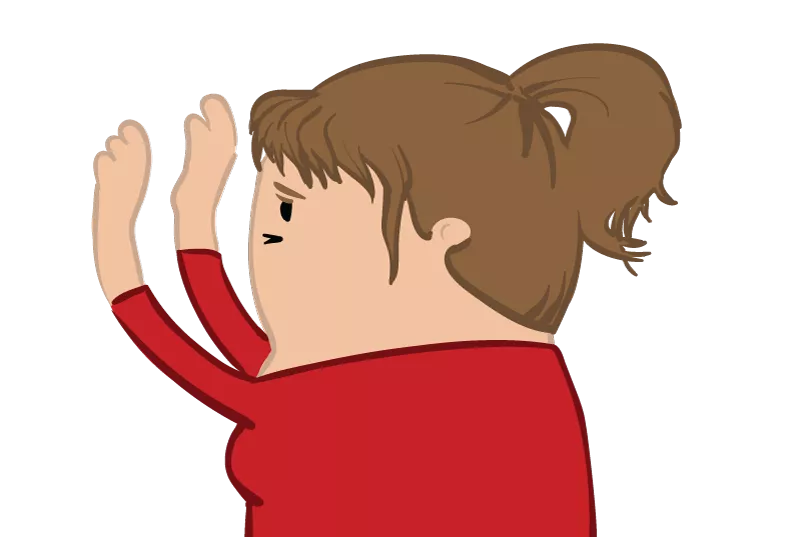
Deciphering Behavior to Curb Meeting Mayhem
Ever gone into a meeting excited to share ideas, pool resources and save time but instead come away frustrated by internal conflict and annoying behaviors? You leave thinking, “That was a colossal waste of time.” Imagine a meeting where everyone knows your behavioral strengths and weaknesses — and you know theirs. They appreciate your perspective and you see where they are coming from. Much better chances you’d walk away thinking, “That was productive” or “Go us!” Decoding behavioral styles gives your organization an edge in efficiency, innovation, and positivity, all essential for growth — and better meetings, too.
Assessing the
In the Room
Why DISC? Why NOT?
DISC is the most widely used behavioral assessment tool, adopted by organizations around the world to improve teamwork and understand different communication styles. TTI Success Insights is the only provider of DISC assessments in the marketplace that generates 384 unique reports, customized for leadership, sales teams and individuals. Backed by 30 years of research, we use DISC to help reveal hidden talents and skills that create high-performing teams.

Dominance
Characteristics
High D:
Driven, Ambitious, Strong-Willed
Low D:
Unobtrusive, Cautious, Agreeable
Famous High Ds:
Gordon Ramsay
Steve Jobs
Tory Burch
Marissa Mayer
LeBron James

Influence
Characteristics
High I:
Enthusiastic, Warm, Persuasive
Low I:
Logical, Matter-of-Fact, Incisive
Famous High Is:
Angelina Jolie
Taylor Swift
Jimmy Fallon
Kelly Ripa
Kurt Warner

Steadiness
Characteristics
High S:
Loyal, Relaxed, Passive, Patient
Low S:
Impulsive, Eager, Flexible, Restless
Famous High Ss:
Brad Pitt
Aaron Rodgers
Dr. Drew Pinsky
Scarlett Johannson
Carrie Underwood

Compliance
Characteristics
High C:
Detail Oriented, Conventional, Exacting
Low C:
Arbitrary, Unbending, Unsystematic
Famous High Cs:
Neil deGrasse Tyson
James Franco
Melinda Gates
Sheryl Sandberg
Dalai Lama
Dominance
Dominance really speaks to how we respond to problems or challenges. Dominance, as a DISC style, can often be angry – sometimes be impatient – and is usually characterized by directness. Dominant individuals tend to be extroverted and task-oriented.

High D
Don’t poke the bear. While a person with high Dominance can give the impression they’re pushy, rude and hard to deal with, it’s their ambitious approach that drives them. This pioneering and strong-willed person is often a CEO, manager, entrepreneur or president.
DO: Get straight to the point.
DON’T: Make generalizations.

Low D
Just because a person with low Dominance has an agreeable, low-key, and conservative approach doesn’t mean they’re uncaring. Low Ds are calculated and cautious in their business and social dealings. They enjoy working independently but want to see all the facts before deciding.
DO: Let them examine all the facts without pressure.
DON’T: Force them to make quick decisions.
Influence
Influence refers to how we influence and relate to people and contacts. Influence, as a DISC style, can often be trusting and optimistic and can sometimes be disorganized or indirect. Influencers tend to be extroverted and people-oriented.

High I
This person thrives on engaging with others and is not afraid to be the center of attention. A person who is high Influence is enthusiastic, optimistic, talkative, persuasive, impulsive and emotional. They function best when working in teams and in positive environments.
DO: Ask feeling questions.
DON’T: Overburden them with details.

Low I
People who score a low Influence are reflective and tend to favor logical arguments. They tend toward pessimism and can sometimes be perceived as moody. A person with a low I excels behind the scenes and prefers to work alone to achieve desired results.
DO: Get to the crux of the matter right away.
DON’T: Bog them down with small talk.
Steadiness
Steadiness is how you respond to pace and consistency. Steadiness, as a DISC style, can often be reserved and non-emotional, and can sometimes be possessive or indirect. Steadiness is introverted and people-oriented.

High S
Steady, stable and predictable. That’s the calling card of a person with high Steadiness, who is composed, resistant to change and prefers to focus on one or two tasks rather than working several. They are even-tempered, good listeners who are friendly, sympathetic and very generous with loved ones.
DO: Focus on explaining the “how” behind your plan.
DON’T: Be confrontational.

Low S
With their impatient and impulsive nature, a person with low Steadiness can be mistaken for a high D as they, too, are always on the go and eager to take on new challenges. They love variety and prefer to take on multiple tasks, flying by the seat of their pants to achieve workplace success.
DO: Make deadlines very clear.
DON’T: Tell them how to do their job.
Compliance
Compliance is how we respond to procedures and constraints. Compliance, as a DISC style, can often be fearful and sometimes be critical and direct. Compliance is introverted, very reserved, and task-oriented.

High C
The person with a high Compliance is accurate, precise, detail-oriented and conscientious. While they can be seen as passive and cautious, these individuals think very systematically and make calculated decisions based on data and facts rather than a gut feeling. They’re good problem solvers and very creative people.
DO: Be patient yet persistent.
DON’T: Speak in overgeneralizations.

Low C
When it comes to decision making and interacting with others, the low Compliance is very firm, strong-willed, and stubborn when offering opinions and advice. A low C person is very opinionated, knows what they want, and can be viewed as obstinate or arbitrary.
DO: Give them plenty of time to come to their own conclusion.
DON’T: Try to persuade them by using fear.
What to Know Before Selecting a DISC Provider
Get a download of the DISC deciphering guide to help you identify your perfect DISC provider and what makes TTI SI DISC unique.


